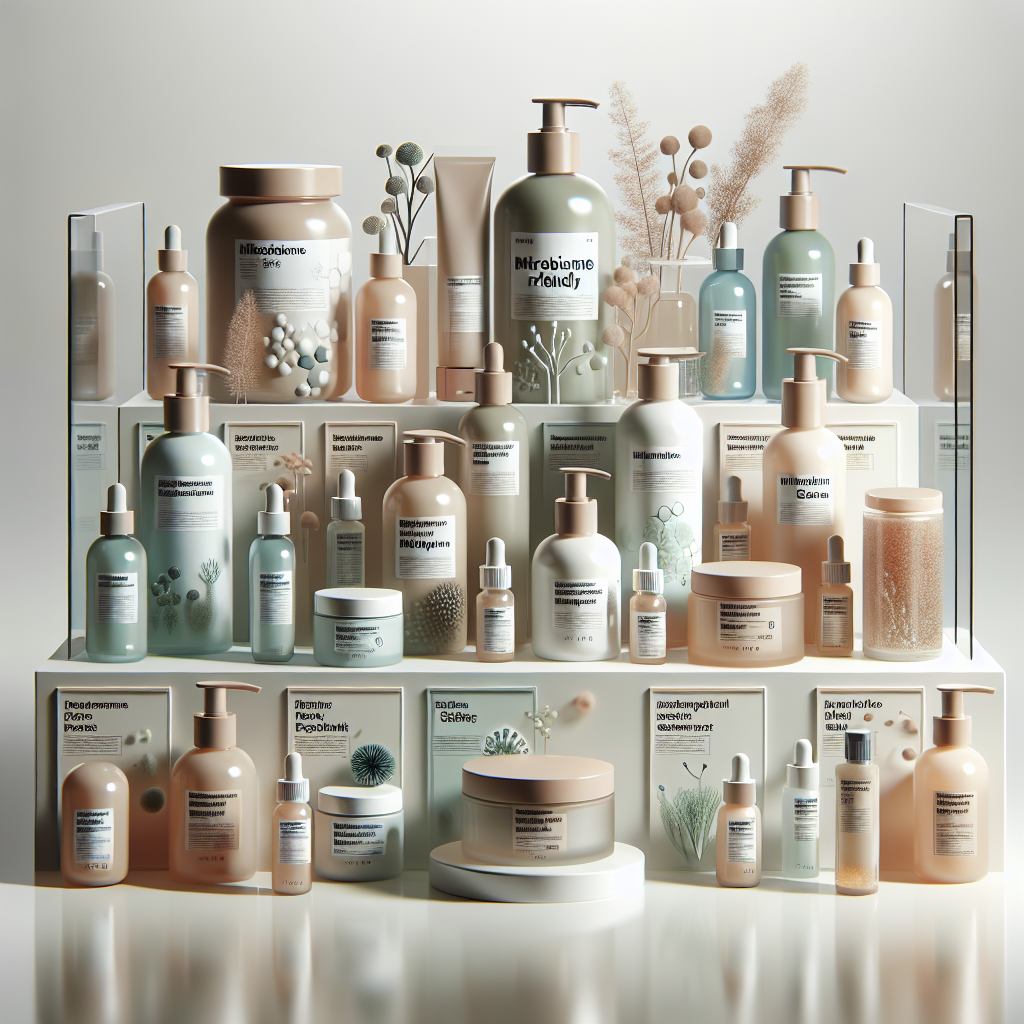The skin microbiome is a thriving community of microorganisms that reside on the skin’s surface, a complex ecosystem that plays a crucial role in maintaining both skin and overall health. Understanding the interplay between these microscopic inhabitants and our body’s largest organ uncovers insights into skin care, disease prevention, and even the management of certain health conditions.
The Skin Microbiome: A Delicate Balance
Our skin serves as the first line of defense against environmental threats. It’s not just a physical barrier; it’s a dynamic organ populated by bacteria, fungi, viruses, and mites that collectively make up the skin microbiome. These microorganisms are not mere passengers; they protect against pathogens, educate the immune system, and even influence systemic health.
A Shield Against Pathogens
The skin microbiome competitively inhibits pathogenic bacteria from colonizing the skin by consuming available nutrients and secreting antimicrobial substances. This protective role is vital in our everyday battle against infections and disease. A diverse and balanced skin microbiome is linked to improved skin health, as it helps ward off harmful microbes and maintains skin integrity.
Educating the Immune System
The skin microbiota also interacts with the body’s immune cells, teaching them to differentiate between harmless and harmful organisms. This education is critical for immune tolerance and can impact conditions such as allergies and autoimmune diseases. The constant communication between skin microbes and immune cells is a key factor in the maintenance of health and the prevention of inflammation.
Influencing Systemic Health
Emerging research suggests the skin microbiome may influence systemic health beyond the skin. For example, there is growing evidence linking skin microbiota to various conditions like acne, eczema, psoriasis, and even certain aspects of cardiovascular health. Disruptions in the microbiome have been associated with skin disorders, emphasizing the need to maintain microbial balance for overall well-being.
Factors Affecting the Skin Microbiome
Several factors can influence the composition and stability of the skin microbiome, including genetics, age, diet, environment, and lifestyle choices. Skincare routines and products also have a significant impact, as they can either support or disrupt the delicate balance of skin microorganisms.
Skincare and the Microbiome
Many common skincare products contain ingredients that can alter the skin microbiome. Overuse of antibacterial soaps, harsh exfoliants, or certain preservatives may harm beneficial bacteria, leading to dysbiosis—an imbalance that can trigger or exacerbate skin conditions. It’s essential to choose products that support the microbiome, such as those containing prebiotics, postbiotics, or live cultures, to promote a healthy microbial community.
The Role of Diet
Diet is another critical factor influencing the skin microbiome. Foods rich in fiber, antioxidants, and healthy fats can support microbial diversity, while a diet high in sugar and processed foods may contribute to dysbiosis. Incorporating a balanced diet with plenty of plant-based foods can support both the skin microbiome and digestive health, creating a positive ripple effect throughout the body’s systems.
Environmental Influences
Exposure to various environments also shapes the skin microbiome. Urban living, pollution, UV radiation, and climate can all impact microbial populations. Even the water we use to bathe can affect skin microorganisms, highlighting the importance of environmental awareness in skincare.
Maintaining a Healthy Skin Microbiome
Several strategies can help maintain a healthy skin microbiome:
- Gentle Cleansing: Opt for mild cleansers that preserve the skin’s natural oils and pH balance.
- Moisturizing: Use moisturizers that contain ingredients like ceramides and hyaluronic acid to support the skin barrier.
- Balanced Diet: Consume a diet rich in fruits, vegetables, and fermented foods to nourish the microbiome from within.
- Mindful Skincare: Select skincare products with microbiome-friendly ingredients and avoid over-cleansing or exfoliating.
The Future of Skin Microbiome Research
The field of skin microbiome research is rapidly evolving, with new discoveries shedding light on the intricate connections between our skin, the microbes we host, and our overall health. For instance, studies are exploring the potential of probiotic treatments for skin conditions, the impact of the microbiome on wound healing, and its role in aging skin.
To delve deeper into the topic of skin microbiome and its implications for health, several high-quality, niche resources offer valuable insights:
- The Human Microbiome Project provides a wealth of information on the human microbiome, including the skin microbiome, and its role in health and disease.
- The International Society for Microbial Ecology (ISME) offers resources on microbial ecology, including the latest research and developments in the field.
- The American Academy of Dermatology presents research and guidelines on various skin conditions and the influence of the microbiome.
In addition to these resources, it’s also beneficial to read related articles from the Avix Health database that provide further context and tips for maintaining skin health:
- The Benefits of Probiotics in Skin Health
- The Importance of pH Balance in Skin Care Products
- Strategies to Enhance Skin Absorption of Products
The skin microbiome is an extraordinary ecosystem that impacts not just the appearance of our skin but also our overall health. By understanding and respecting this complex community, we can adopt skincare practices that nurture and protect it, leading to healthier skin and a healthier body. As we continue to learn more about the skin microbiome, we will undoubtedly uncover new ways to harness its power for improved health and well-being.



